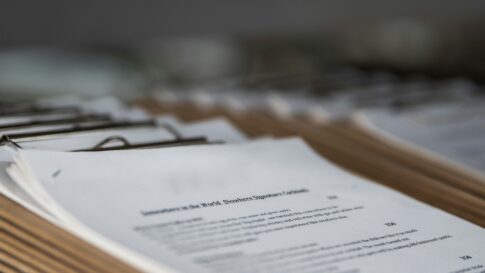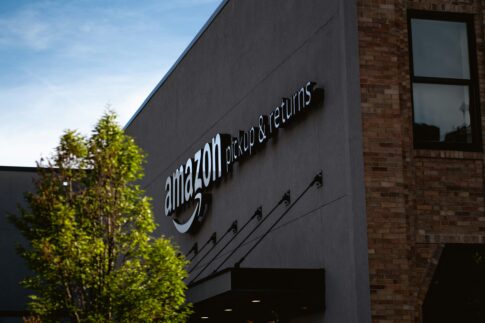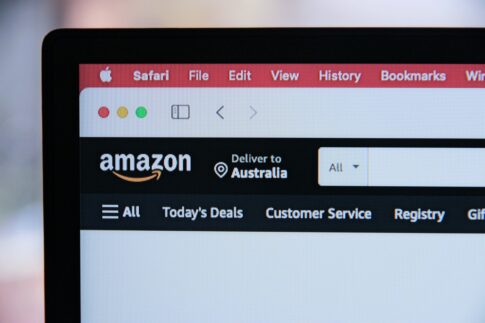If sellers sell items along with prizes of pocket tissues or hand wipes upon which their business names are printed, they can sell other brand’s items with JAN codes as ‘Brand: non-branded’.
Although an item sold along with the prize of pocket tissues or handwipes meets neither the ‘Quality Price’ nor ‘Seller who offers good customer service’ criteria, which the ‘Featured Offer’ or ‘Buy Box’ explain are necessary to be chosen by Amazon, it is displayed on top of the search results with a ‘Buy Box’ provided.
Amazon misled consumers who considered buying the item into believing that the item was significantly superior to the original item, which it was not, and thereby was likely to influence customers unjustly and to impede ordinary consumers’ voluntary and rational choice-making. These actions fall under the category of misleading advantage (Article 4 (1)(ii) of Act against Unjustifiable Premiums and Misleading Representations). Moreover, although Amazon overtly claimed in the 2018 Lawsuit Against the Japanese Government that consumers will check customer reviews without fail whenever they make a purchase on their website, they are inflicting further damage on consumers by offering ‘Subscribe & Save’ for the item, which many customer reviews have described as a scam.
A seller has been displayed as having a ‘4.9/5 star rating’ and ‘100% positive feedback in the last 12 months’. However, this was because Amazon removed all the ‘1 star’ ratings, leaving only a review which stated: ‘Message from Amazon: This item was fulfilled by Amazon, and we take responsibility for this fulfilment experience.’ Therefore, reviews left as ‘1 star’ cannot be displayed unless consumers make the effort to click on and open the 0% of the ‘1 star’ bar. One of these ‘1 star’ reviews states: ‘It was a scam. (…) Amazon should check third party sellers. It is irresponsible. Not the first time experiencing a scam.’ This is a typical example of a scam for customers who made the purchase believing that Amazon recommends it as a ‘Featured Item’ because it displayed the item on top of the search results with a ‘Buy Box’ provided.
Amazon operates a system which makes cancellations harder and more troublesome and is only beneficial to itself as it profits from selling fees.
On 26 September 2023, The Federal Trade Commission (FTC) and 17 state attorneys general sued Amazon.com. Mr. Noboru Matsuzawa at the Insurance Research Department of the NLI Research Institute explained the lawsuit in detail in Japanese and published a report titled ‘Research Institute Report: Competition Lawsuit Against Amazon’ on the Institute’s website.
In this report, he revealed that the FTC believes Amazon wishes to make more profits with pay-per-click advertisements as these are enormously lucrative. Thus, Amazon displays product listings interspersed with irrelevant advertisements over more relevant results, making it hard for consumers to find lower prices and instead steering them towards higher prices. The same practice was taking place on amazon.co.jp.
Amazon is complicit in the scam business by proactively dispatching items which are, in fact, not ‘value for money’ at all, alongside which are displayed the text ‘Save more money with Subscribe & Save.’ Amazon has allowed customers to purchase a ‘not at all cheap’ priced item using ‘Subscribe & Save’ and made it difficult for them to find ‘Skip or cancel anytime’ ‒ which is important to consumers ‒ by not showing the full text (which is by no means lengthy) and without a side bar visible enough for them to scroll down easily. To boost their own profits, Amazon is inflicting further damage on consumers with malicious intention. The Act on Prohibition of Private Monopolisation and Maintenance of Fair Trade (Anti-Monopoly Law) states that no enterprise which has effected unreasonable restraint of trade or employed unfair trade practices may be exempted from the liability by proving the non-existence of intention or negligence on its part (strict liability – damage liable whether or not negligent).
The Claimant noted in the content-certified mail directly addressed to Jasper Cheung, CEO of Amazon Japan, that a Russian seller has been selling Russian Army equipment on their website (Claimant’s Brief 12, p. 9, no. 5). Cheung could have chosen to deal with this immediately, but decided not to and allowed the seller to continue selling as these items cannot be obtained anywhere else and sold extremely well until the Claimant referred to them repeatedly in the Briefs. Given this attitude by Cheung, who leaves no doubt about the matter, this should also be seen as a problem from a money laundering point of view. Aside from the Claimant, another individual alleged that some sellers are selling laptop computers with unlicensed Microsoft Office installed on them, and that this was known to Jasper Cheung (Claimant’s Exhibit 214). However, having recognised unfair practices, Cheung not only permitted the ongoing sale of such items but also commended these fraudulent sellers for selling these products in 2022 and 2023. Thus, the individual concerned notes that Cheung can be described as their accomplice.
The reason why Amazon is actively suppressing valid customer reviews voicing complaints against a seller almost every week is that it is conspiring with malicious sellers who sell their expensive items using sponsored advertising, which clearly benefits Amazon. Amazon ensures such sellers will not be excluded from the Buy Box selection by keeping their seller reviews high at all times.
Thus, Amazon is conspiring with these sellers for their own benefit and is influencing consumers to choose expensive items by displaying them in a conspicious place.
The truth is that to find the cheapest priced item possible when searching for ‘Scottie tissue paper’, you have to scroll down to the 56th search result, which is exactly what the US consumers alleged in their lawsuits. According to the Claimant’s investigation, the cheapest item (5 packs of Scottie tissue paper) was being sold for the price of 452 yen by 11 sellers. Amazon displayed the cheapest item as having ‘No featured offers available’. Instead, immediately next to the cheapest item, Amazon displays the item being sold at a price of 2890 yen for 3 sets (which is dispatched from their warehouse) or, next to the 3-set item, the item being sold at a price of 980 yen along with a pack of pocket tissues, with the ‘Buy Box’ provided for one-click shopping. Thus, the cheapest item, against which the prices of many sellers are competing, seems at first glance to be unavailable for purchase. Although the 11 sellers would have paid Professional Seller fees in the expectation that their items would be chosen as the Buy Box winner for this catalogue, none of them met all of Amazon’s expectations; hence, their items could not be displayed to consumers.
[Case study: Scottie tissue paper]Read about this in more detail: Claimant’s Brief 14 (pp.36-89)







